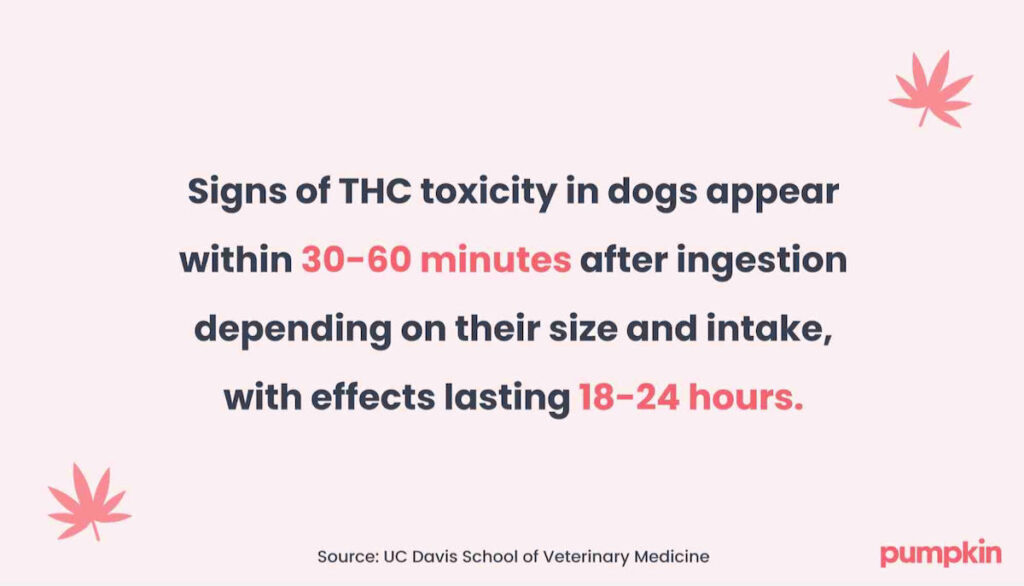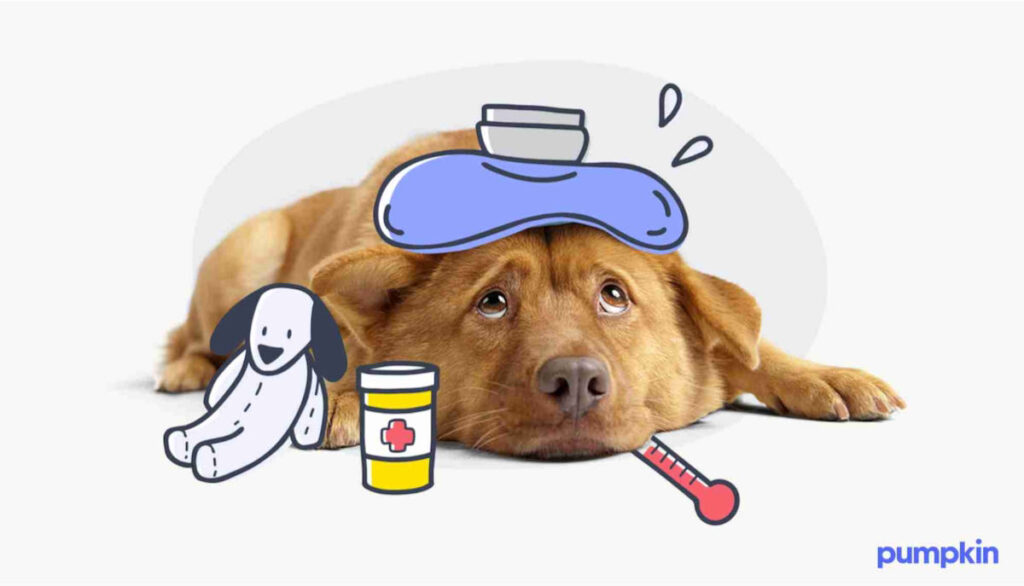- Andrea Michelson
- Feb 10
- 6 min read
Updated: Aug 4
Key Points:
Dogs can get high if they inhale or ingest cannabis, so keep your stash secured.
Symptoms of THC toxicity in dogs may include loss of coordination, drooling, vomiting, dribbling urine, and disorientation.
If your pup eats weed in any form, call your veterinarian immediately and be honest about what happened.
If you’ve ever indulged in the occasional joint, bowl, or vape pen with your dog around, you may have wondered if your pup was at risk of getting a secondhand high. You may also be worried about your pup accidentally snacking on your stash of edibles. You wouldn’t be the first pet owner to experience this particular strain of paranoia — especially now that cannabis is effectively legal in 24 states.
So, can dogs get high? Absolutely. Dogs have the same chemical receptors for weed as humans do, so it is possible for them to feel “high” from inhaling or ingesting marijuana. Don’t get any wild ideas: Your dog won’t enjoy the experience.
Even the most responsible pet owners can be humbled by an accidental toxic ingestion incident, and the situation is even scarier when drugs are involved. However, don’t be scared to be honest with your vet. They need as much information as possible to provide the best treatment they can.
Keep reading to learn about the signs of THC toxicity in dogs, what to do if your pet has already gotten into your stash, and how to keep your dog safe.
Dogs and marijuana don't mix
You may have heard of THC, which is the psychoactive chemical in cannabis that makes you feel “high.” Dogs are susceptible to this chemical too, so exposure to marijuana smoke or ingestion of THC-infused treats can certainly affect their physical and mental health.
In fact, dogs’ brains have more cannabinoid receptors than we do. This means canines are extra sensitive to THC (and we’re not just talking about sniffer dogs at the airport). That means a human-sized dose of marijuana will affect a dog more severely, making the risk of marijuana poisoning all the more serious.
As a rule of thumb, you definitely should not smoke any substance around your pet, regardless of its legal status. However, it’s unlikely that your dog will inhale enough secondhand marijuana smoke to be affected negatively, especially if you’re smoking outside. Most incidents of THC toxicity in dogs are related to edibles (snacks or candy containing THC) or accidental ingestion of the plant itself.
What do I do if my dog ate weed?
Have you noticed that your cannabis-infused chocolate bar is missing, or that your dog is acting a little strange? Maybe they ate a half-smoked joint on their daily walk, and now you don’t know what steps to take.
If you suspect your dog ate weed, your first step is to determine what and how much they ate.
If it’s an incident at home, consider what’s missing from your supply and look for leftover wrappers that may contain an ingredient list. Your vet will want to know if your dog ingested any other dangerous ingredients, such as tobacco, chocolate, or xylitol (a preservative that’s extremely toxic to dogs).
Call your vet as soon as you finish your at-home detective work, and make sure to give them the full story. Hiding the truth from your vet won’t help you or your dog, and it may ultimately harm your pup if it delays diagnosis and treatment.
Your vet is not obligated to tell the authorities about your private activities, even if THC products are illegal in your state. Besides, you can trust that you both have your pet’s best interests at heart.
Be extra careful with edibles
Remember: Dogs are often more likely to eat edibles due to their appealing flavors and scents.
Edibles also contain higher doses of THC compared to cannabis flower, making them especially dangerous. Take extra care to store edibles out of reach, just as you would if you had children in your home.
What are the signs of THC toxicity in dogs?
The most common signs of THC toxicity in dogs typically appear within 30 to 60 minutes after ingestion, depending on the dog’s size and how much they consumed. The effects of marijuana can last between 18 and 24 hours.

While it might not seem that unusual for your dog to nap all day or stumble a bit, symptoms of THC toxicity can be life-threatening in severe cases — especially when edibles or THC concentrates are involved. Dogs already have an increased sensitivity to THC, and the high potency of edibles can be toxic for your pet.
Some of the most common symptoms of THC toxicity in dogs include:
Urinary incontinence or “dribbling”
Drooling
Disorientation
Drunken gait or stumbling
Lethargy
Increased reactivity
Low heart rate
Low blood pressure
Dilated pupils
More severe cases of THC toxicity in dogs can lead to seizures, tremors, trouble breathing, and even coma. A recent survey of veterinarians found that fatal cases of suspected marijuana ingestion are increasing, but remain relatively rare. This could be related to the increased availability of cannabis products with very high concentrations of THC.
What is the treatment for THC toxicity in dogs?
There’s no specific procedure for getting your dog “un-stoned.” The recommended course of treatment will vary based on how much your dog ate and how recently they ate it. While THC can be detected with a blood or urine test, vets tend to diagnose toxicity based on the telltale symptoms.
If you’re able to get your pet to the vet within 30 minutes of their accidental ingestion, your veterinarian may try to make your dog vomit to reduce the amount of THC absorbed into their bloodstream. Never try to make your dog throw up unless you’ve been directed to do so by your veterinarian or a pet poison helpline.
Activated charcoal may also be used as a treatment, but it should only be administered by a veterinary professional.

If your dog is showing mild symptoms of THC toxicity, your vet may recommend you ride out the high at home and keep your pup calm with lots of supportive care. Make sure your dog gets plenty of fluids to prevent dehydration.
Medical marijuana and dogs
Many people use marijuana medicinally for a variety of health problems, from insomnia to chemotherapy-induced nausea. You can also buy legal cannabis products containing compounds like CBD and Delta-8, both for recreational and medicinal use. We recommend consulting with your veterinarian before introducing CBD or hemp supplements to your dog's diet.
You should never administer marijuana or THC-containing products to your dog. Whether your dog is anxious, struggling to sleep, or dealing with chronic pain, there are much safer treatments and over-the-counter remedies such as melatonin for dogs.
How can I protect against THC toxicity in dogs?
The American Society for the Prevention of Cruelty to Animals (ASPCA) and the Pet Poison Helpline have both named cannabis one of the 10 most common pet poisons. So, make sure to secure your stash in a locked drawer or high cabinet. If it comes with a warning label or a child lock, you don’t want your dog getting into it.
Still, accidents can happen when your head is in the clouds, and treating THC toxicity in dogs is not cheap. The last thing you want to worry about in the hospital waiting room is the cost of care.
Consider pet insurance as a way to be ready for accidents before they happen. Pumpkin Dog Insurance plans can help cover the costs of eligible vet bills in the future, giving you peace of mind as your pup grows up.
FAQs
How do I know if my dog accidentally got high?
Look for signs like excessive sleepiness, clumsiness, drooling, enlarged pupils, vomiting, or shaking. Your dog may also appear overly anxious or unusually calm. If you left any marijuana or edibles where your dog could reach it, check to see if anything is missing.
Can you hotbox a dog?
In marijuana culture, “hotboxing” refers to smoking in a confined space and allowing it to fill up with secondhand smoke. You should never confine a dog in a space with marijuana smoke. This exposes them to harmful toxins and poses serious health risks.
What should I give my dog if they ate weed?
Contact your vet immediately for guidance. Do not attempt home remedies. Ensure your dog has water and remains in a calm, quiet environment. Do not attempt to make them throw up, as this should only be done by a veterinary professional.
How long will my dog be sick after eating weed?
In most cases, your dog will be feeling back to normal in 18-24 hours, and most dogs will fully recover in 1-2 days. In serious cases, symptoms can persist for up to 72 hours.
REFERENCES
https://www.vets-now.com/pet-care-advice/what-do-i-do-if-my-dog-eats-cannabis/
https://vcahospitals.com/know-your-pet/marijuana-intoxication-in-dogs-and-cats
https://todaysveterinarypractice.com/toxicology/marijuana-intoxication-in-cats-and-dogs/
https://healthtopics.vetmed.ucdavis.edu/health-topics/canine/marijuana-toxicosis
https://cvm.msu.edu/vetschool-tails/pets-on-pot-just-high-or-highly-dangerous
https://vet.tufts.edu/news-events/news/marijuana-toxicosis-pets
https://journals.plos.org/plosone/article?id=10.1371/journal.pone.0261909
http://petpoisonhelpline.com/pet-owners/basics/top-10-pet-poisons/
https://www.avma.org/resources-tools/animal-health-and-welfare/animal-health/cannabis-use-and-pets

